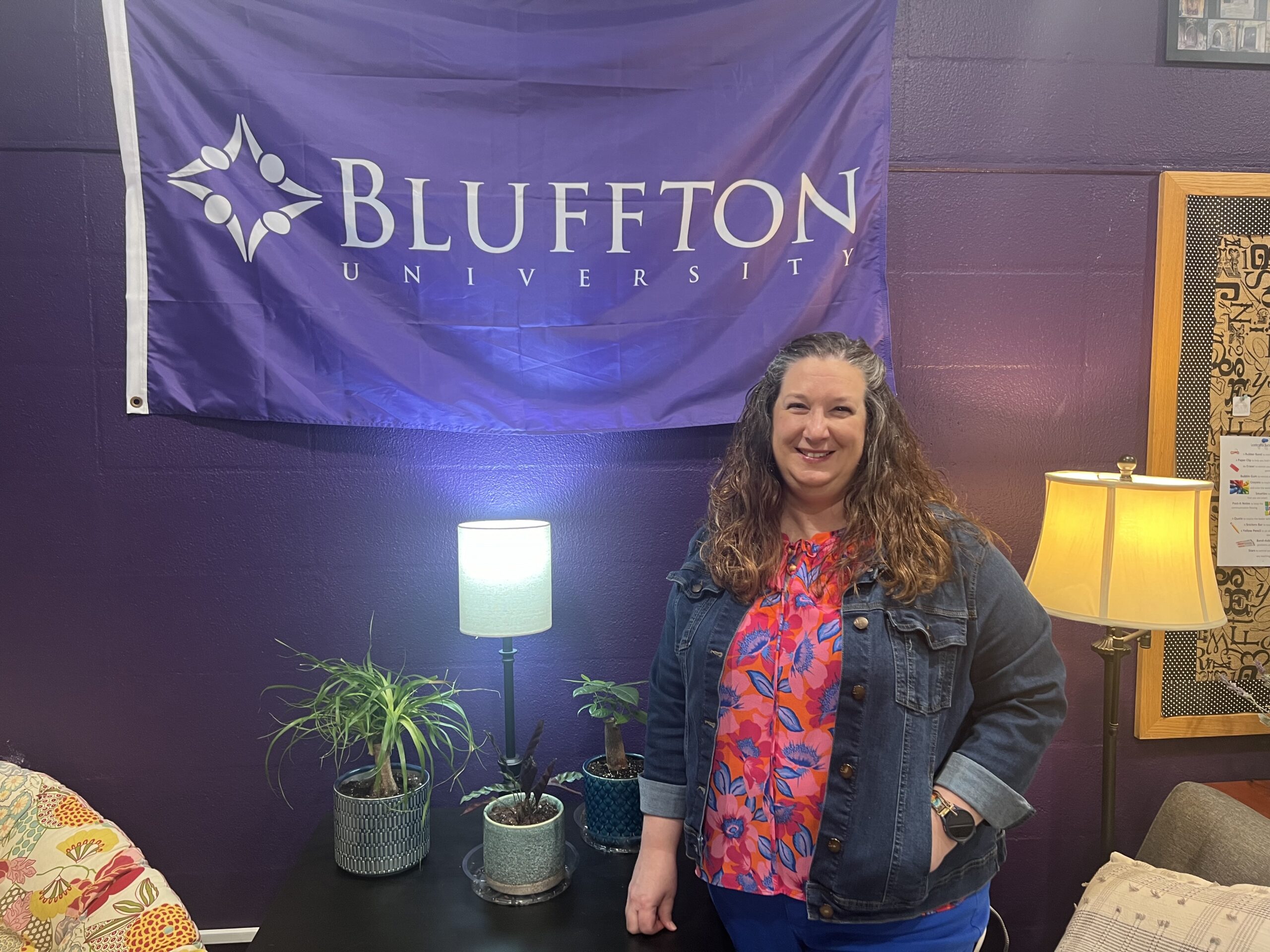
John Fallon photo by Claire Myree
John Fallon, an adjunct instructor teaching one section of CMP 110 College English, is trained in a form of conflict resolution known as “verbal judo,” which uses verbal communication skills to de-escalate potentially dangerous situations. Fallon uses the principles of verbal judo to help him communicate and connect better with his students.
“The idea of verbal judo is to make people feel safer by learning certain persuasive and argumentative techniques,” said Fallon. “The ethical component of verbal judo is that it should not be used as a way to manipulate people, but instead used as a way to make your space safer by knowing what to say and how to say it. The high-intensity world of law enforcement may seem more exciting, but being able to communicate well is a skill that is applicable in all situations.”
The core principles of verbal judo are (in order): ask don’t tell, explain why you’re asking, give options instead of threats (in the order of good/ bad/ good), give a second choice, take action.
Fallon uses these core principles to help establish an environment of mutual respect between him and his students.
“The only way we can go places together is if my students see that I am authentic in my respect for them,” said Fallon. “I feel that knowing verbal judo makes me a better teacher of college english. I use these skills as they go forward and make a difference in their communities.”
He also finds these basic elements of verbal judo to be essential to teaching his students about the importance of integrity in their studies.
“I take the basic skills of verbal judo and challenge my students to apply them to their own research and academic lives,” said Fallon. “I want them to be taken serious as emerging scholars in their various fields.”
Fallon completed his training in verbal judo with organizations who specialize in conflict management for law enforcement officers, who may find themselves needing to de-escalate high intensity situations without the use of violence.
“A lot of the training I went through dealt with cop stuff,” said Fallon. “The idea was that police officers were too heavy handed, which is still a controversial issue today.
Fallon was introduced to the world of conflict resolution communication when he served as a (college) faculty liaison for an active shooter training in 2010. In this role, he was able to work with the Lima police department about how to respond to an active shooter. As a result of building this relationship with the Lima police department, he was introduced with the concept of “verbal judo,” which piqued his interest. He participated in a one week training in verbal judo provided by the Ohio Peace Officer Training Academy.
“I couldn’t wait to share verbal judo with my colleagues and students,” said Fallon. “After the training, I went around campus telling everyone about it and holding training for teachers. I even wore my martial arts uniform to make people remember the name of verbal judo. That may sound corny, but I was really trying to get people interested because I believed in it so much”
Fallon created a specialized course in verbal judo which is taught at Rhodes State College in Lima.
“Students love this class because they can use the skills they learn at home,” said Fallon. “It shows them how to deal with siblings and parents who drive them nuts without fighting. I wish I had known about verbal judo when my daughter was a teenager.”
Fallon has done training in verbal judo at the Samaritan House, a domestic violence shelter in Lima, and with companies who have hired him out of a desire to make their workplaces more collaborative and respectful environments. There was a boom in the desire for verbal judo classes for law enforcement after the George Floyd murder re-sparked concerns about police brutality against African-Americans.
“Verbal judo classes started filling up in the weeks following George Floyd’s death,” said Fallon. “Classes started filling up because law enforcement agencies felt that there was a need that needed to be addressed in regards to de-escalating situations without using violence.”
When asked what his favorite part of his journey with verbal judo has been, Fallon said that it has been hearing how his students and colleagues have used verbal judo in their own lives and seen positive results.
“Knowing and doing are two separate things,” said Fallon. “Just because we may know the principles of verbal judo does not necessarily mean that we will use it. So, when I hear that students are actually using verbal judo in a way that’s helping communicate in more effective ways, I feel really happy about it.”






